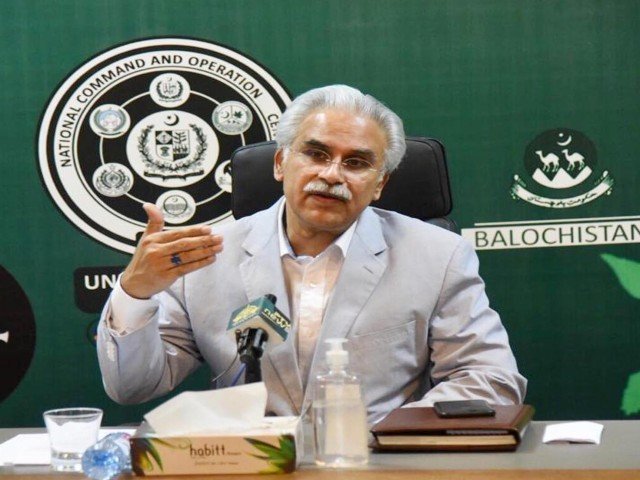
Govt may reimpose lockdown after Eid if situation gets worse, says PM’s aide
by News DeskSpecial Assistant to the Prime Minister on Health Dr Zafar Mirza has feared that cases and deaths due to Covid-19 could increase in the coming days, saying the government will evaluate the prevailing situation immediately after Eid and can review its decision of relaxation in lockdown if the situation gets worse, Radio Pakistan reported.
In a media briefing on Monday, he said that the lockdown was relaxed in the country in view of the Eid festival but it seems people are under the wrong impression that prevalence of the disease is reducing.
According to the de facto health minister, it is being observed that movement and interaction of people have increased during Eid holidays and SOPs are not being properly followed, which could lead to disastrous situation. “Social distancing and other precautionary measures are key to stop the spread of this killer disease.”
He said this Eid has been dedicated to frontline health workers who are selflessly fighting the disease.
Referring to number of coronavirus cases worldwide, the SAPM said so far 5.5 million people in the world have been affected by coronavirus and 347,000 lost their lives. “Testing rate is increasing in Pakistan and till yesterday 483,000 tests had been made.”
Dr Mirza said number of confirmed cases of coronavirus in the country is 56,349 while recovery rate is 38 per cent.
During the last 24 hours, he said, 4,365 people have been admitted to hospitals for coronavirus, of which 112 are on ventilators.
The PM’s aide went on to say that 1,157 people lost their lives in this disease so far, of which 24 died during the last 24 hours alone.
The special assistant on health again appealed to the people to strictly follow SOPs including avoiding close contact, maintaining social distancing, wearing face masks, frequent washing of hands with soap or sanitiser and other directions given by the government from time-to-time.